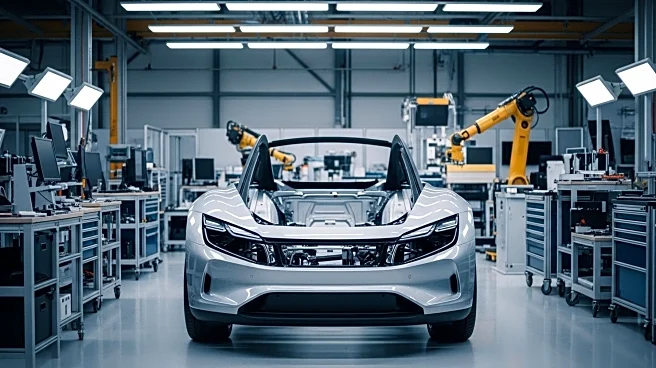What is the story about?
What's Happening?
Rivian Automotive has announced plans to build a new electric vehicle factory in Georgia, which is expected to create approximately 7,500 permanent jobs. The factory, known as Project Horizon, will have the capacity to produce 400,000 vehicles annually. This development comes despite the recent loss of federal tax credits for electric vehicles. Rivian had initially planned the facility in 2021 but paused the project to focus on expanding its Illinois factory. The project has been revived following a $6.57 billion loan commitment from the U.S. Department of Energy's Loan Programs Office. The groundbreaking ceremony is scheduled for September 16, with Georgia Governor Brian Kemp expressing strong support for the initiative.
Why It's Important?
The establishment of Rivian's new factory in Georgia is significant for several reasons. It represents a substantial investment in the U.S. electric vehicle industry, which is crucial for reducing carbon emissions and transitioning to sustainable transportation. The creation of 7,500 jobs will provide a significant economic boost to Georgia, particularly as the state faces job losses from other industries. Additionally, Rivian's commitment to building the factory despite the loss of federal tax credits underscores the company's confidence in the long-term viability of electric vehicles. This move may also encourage other automakers to invest in similar projects, further advancing the U.S. electric vehicle market.
What's Next?
The next steps for Rivian include the formal groundbreaking of the factory and the commencement of construction. The company will also need to navigate any remaining regulatory hurdles and continue to secure partnerships with local academic and technical institutions to support workforce development. As the factory becomes operational, it will be crucial for Rivian to maintain production targets and quality standards to compete effectively in the growing electric vehicle market. The project's success could influence future policy decisions regarding federal support for electric vehicles.

















